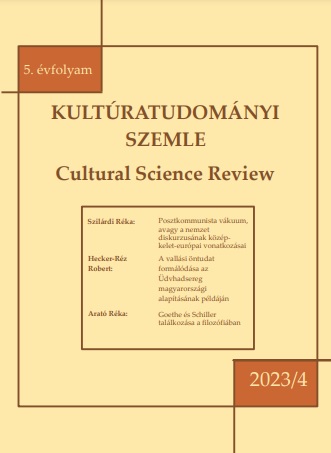Az infokommunikációs technológiai eszközök gyermeki beszédfejlődésre gyakorolt hatásai
DOI:
https://doi.org/10.15170/KSZ.2023.05.04.07Absztrakt
The effect of ICT on speech development for children
The corpus of my research is the use of information and communication technologies and their effects on speech development. The aim was to investigate the relationship between using ICT tools and speech and language development. Based on the
literature reviewed, several studies emphasise the importance of discussing and examining the interaction between children's verbalisation and digitalisation in more detail. Research by Dávid et al. (2016) revealed that in the field of expressive speech
and verbal ability in independent composition, significantly better results were achieved by children who used ICT tools infrequently. Zemán's (2020) research also shows changes in phonological consciousness due to the effect of various tools.
Considering these, I applied two tools to conduct the study: an ICT usage questionnaire for parents and the so-called “Szól-e?” filtration process. A thorough analysis of the results revealed that a relatively low percentage of children in my study area interact with ICT tools before age two. Regarding control, parents with university degrees or higher education are more frequently in control of the use of devices. In analysing the results of the “Szól-e?” examination, I divided the children into two
groups. The first group uses television for over one hour, and the second group uses less than one hour. Based on these results, it was shown that the group with a lower usage rate achieved a better average on most subtests.

